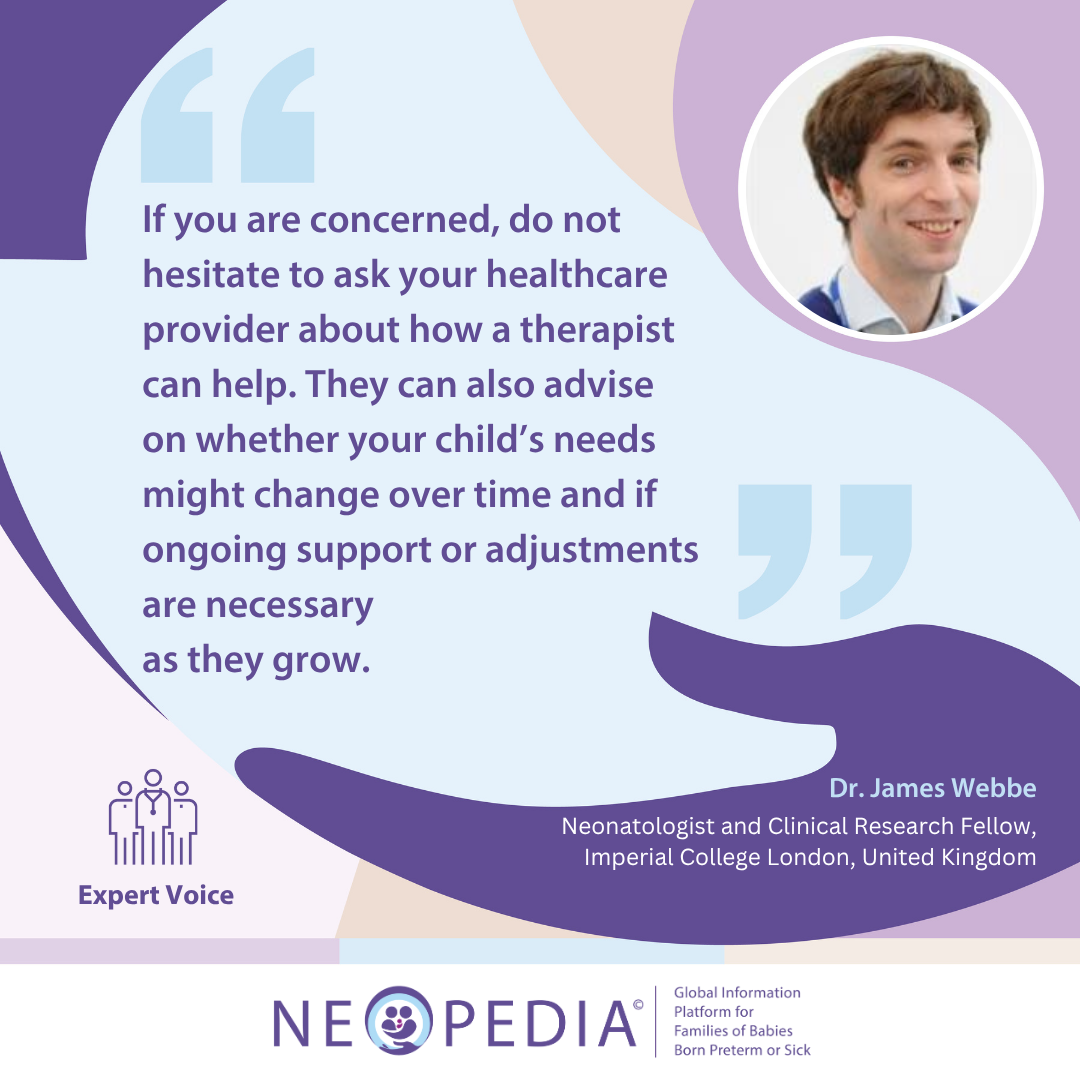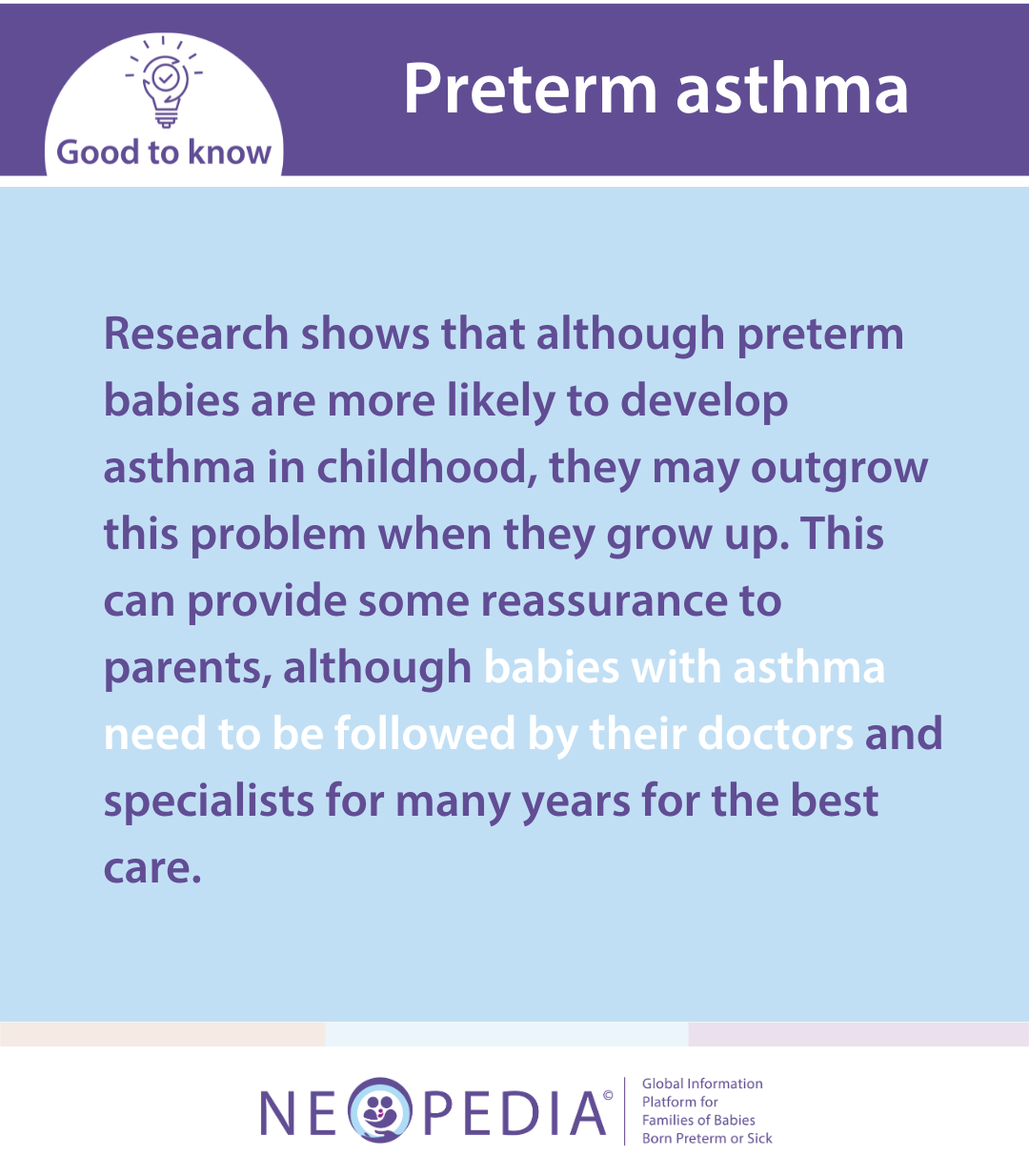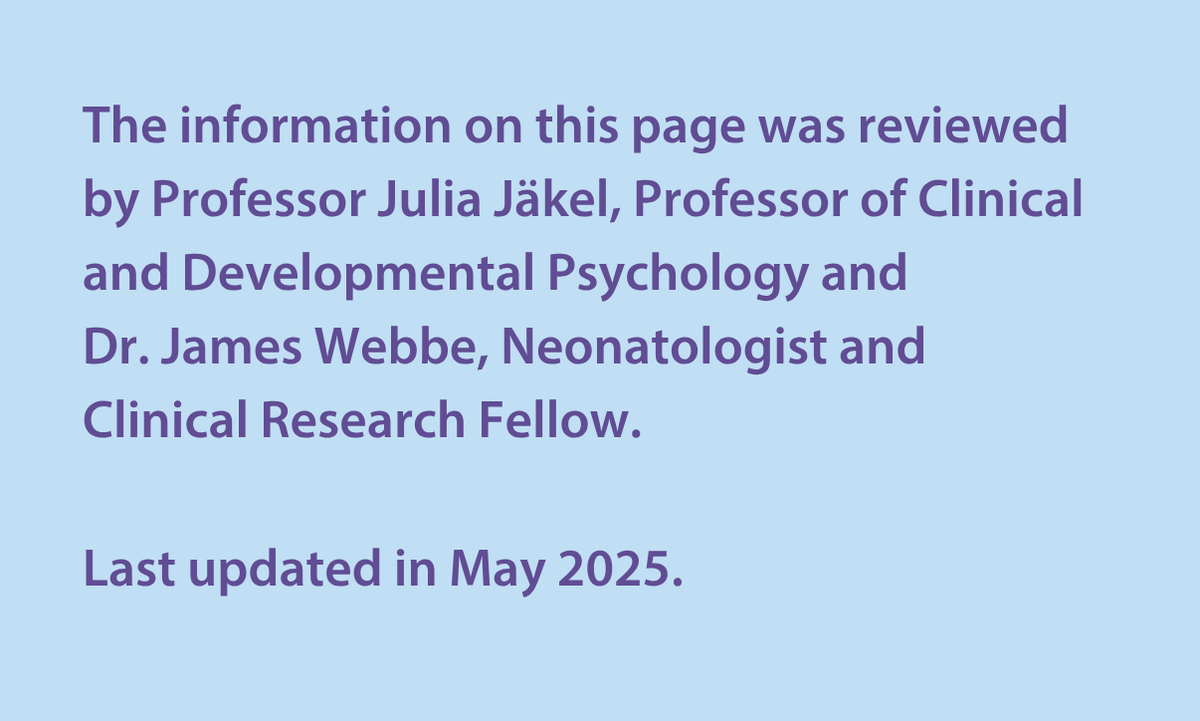When you take your preterm or sick baby home from the neonatal unit, it is important to make sure the home environment is suitable for their special needs. Preterm babies are often more sensitive to their environment than full-term babies, including a higher risk of breathing problems. Preterm babies also have a higher risk of infections because of their immature immune systems.
The following page will guide you through the key issues to consider and give you advice on adapting your home and routines to support your baby's health and development.

Sensory processing is how the brain understands things like sights, sounds, touch, and movement. Preemies may sometimes become overwhelmed by sensory information because their brains and other organs, such as their skin, are not yet mature enough to process it. They are also often exposed to more intense sense-related experiences in the neonatal unit than full-term babies. This can affect how they respond to sensory input later in life: preterm babies may be more sensitive to certain things.
Some children are over-sensitive (hypersensitive) or under-sensitive (hyposensitive) to sensory input. Hypersensitivity means that they may react strongly to loud sounds, bright lights, being touched, or certain food textures. Hyposensitivity on the other hand means that they may crave more intense sensations like constant movement, loud noises, or chewing on things.
Each child is different and may show a mix of both over- and under-sensitivity.
Helping with sensory processing at home
If your child has sensory challenges, an occupational therapist (OT)⍰ can help by creating a “sensory diet” with strategies that can help them feel more comfortable. Tools like weighted blankets or noise-cancelling headphones are often used.
If you are concerned, do not hesitate to ask your healthcare provider about how a therapist can help. They can also advise on whether your child’s needs might change over time and if ongoing support or adjustments are necessary as they grow.

Because preterm babies have smaller airways, any inflammation or swelling (like from viral infections) can block their breathing and affect oxygen levels. Babies with Bronchopulmonary Dysplasia (BPD)⍰ are especially at risk for these problems. Some preterm babies may develop asthma as they grow, which is a long-term lung disease caused by many factors, not just infections. Allergies and the environment can also play a role.
Common asthma triggers include things that may be in your baby’s environment:
When these triggers are present, a child with asthma may experience symptoms such as breathlessness, chest tightness, coughing and wheezing. However, although wheezing can be a sign of asthma, not all children who wheeze will develop the condition.
Most asthma attacks in children are mild and may disappear within a few days. However, severe asthma attacks, which include struggling to breathe, distress and exhaustion, require immediate medical attention. If your child experiences these symptoms, it is important to seek emergency care immediately.
Creating a safe environment at home to manage asthma
A clean home is important. While there is no need to obsessively clean or use harsh chemicals, reducing dust and limiting exposure to potential triggers can already make a difference. Handwashing for at least 20 seconds before handling your baby is another simple step to help prevent respiratory infections, which can worsen asthma symptoms.
Read more about asthma and the impact it can have on adult life.
Preterm babies are more likely to get infections because their immune systems are weaker. While good hygiene is essential, it is also important to find a balance. Cleaning excessively or using strong disinfectants can introduce harsh chemicals into your home, which can irritate your baby's lungs.
Basic hygiene practices such as regular hand washing, especially after changing nappies (diapers), preparing food or using the toilet, are crucial. Also, make sure visitors wash their hands before interacting with your baby. Try to avoid crowded places and large groups of children, and make sure that everyone who meets your baby is healthy and practices good hygiene. A caregiver showing signs of a cold or respiratory infection should take extra care with hygiene and consider postponing their visit or wearing a mask until they feel better.

